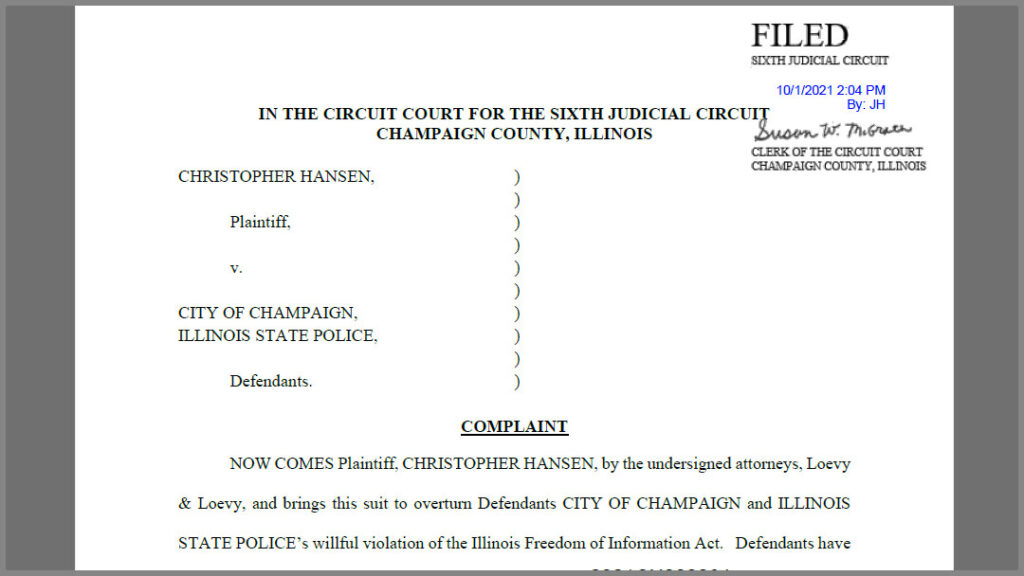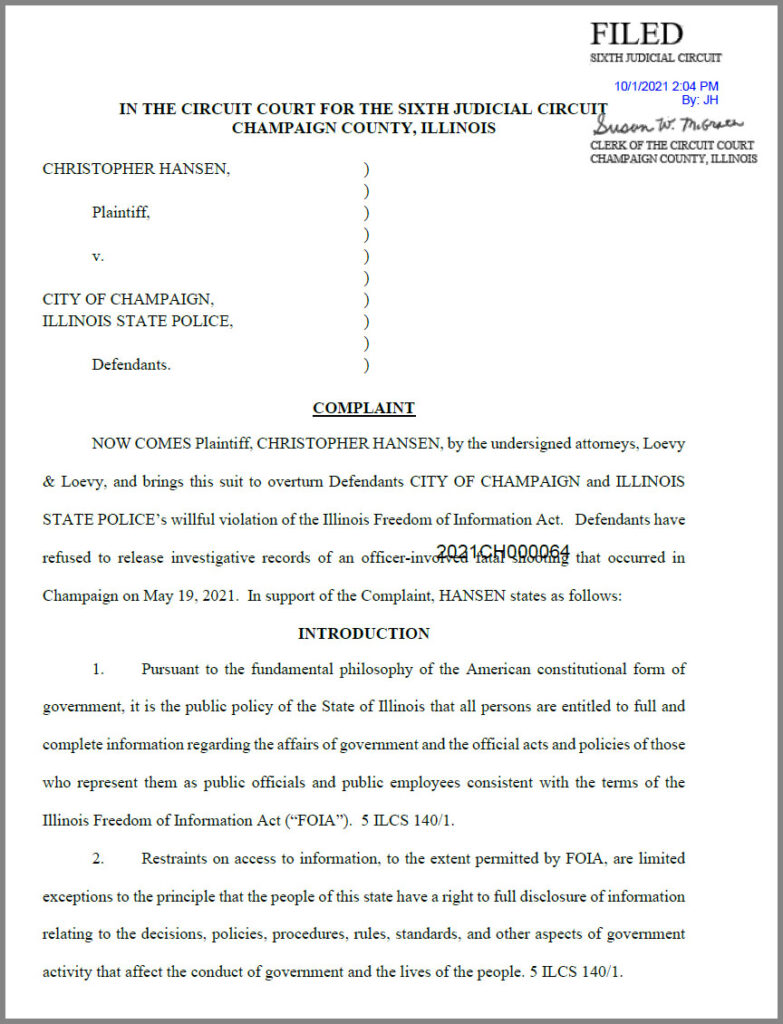
On May 19, 2021, City of Champaign Police Officers Chris Oberheim and Jeffrey Creel responded to a call regarding a domestic disturbance. After the officers approached an individual sitting in a car outside of the Town Center Apartments complex in the north end of Champaign, a horrific gunfight ensued.
The civilian, Darion Lafayette, stepped out of the car and a physical struggle began between Lafayette and Creel. Lafayette began firing a handgun and struck Oberheim multiple times, and also struck Creel three times. After getting back to his feet, Creel fired at Lafayette.
Oberheim and Lafayette died as a result of gunshot injuries, and Creel was injured. It was the first line of duty death in Champaign since 1967, and arguably the most notable police-involved shooting in the Champaign-Urbana area in over a decade.
On May 26th, 2021, one week after the shooting occurred, Champaign County States Attorney Julia Rietz published a Preliminary Report titled “Champaign Police Department Officer Involved Fatal Shooting”. Rietz felt confident that enough evidence was present at the time to provide her analysis, and said in her report that there is unlikely to be any new evidence that would meaningfully change her outlook:
“It is also possible, as in any investigation, that additional witnesses could come forward and provide relevant information. However, we do not expect any additional evidence or information to affect or alter our preliminary opinions.”
Thus far, no police reports or other primary records have been released to the public, except for a few minutes of video released by the Illinois State Police (ISP). Even three and four months after Rietz issued her report, the Champaign Police Department and the ISP fully denied Freedom of Information Act (FOIA) requests on the incident, citing exemptions 7(1)(d)(i), 7(1)(d)(iii), 7(1)(d)(vii). From the FOIA, these exemptions are:
7(1)(d) Records in the possession of any public body created in the course of administrative enforcement proceedings, and any law enforcement or correctional agency for law enforcement purposes, but only to the extent that disclosure would:
(i) interfere with pending or actually and reasonably contemplated law enforcement proceedings conducted by any law enforcement or correctional agency that is the recipient of the request;
(iii) create a substantial likelihood that a person will be deprived of a fair trial or an impartial hearing;
(vii) obstruct an ongoing criminal investigation by the agency that is the recipient of the request.
These exemptions apply only if disclosure of the records “would” interfere, and even then the exemptions do not warrant a wholesale denial, but perhaps redactions of particular details. The public body citing the denial has to demonstrate how a release of records “would” affect a trial, not merely “could” affect a trial.
It is not at all clear to what “proceeding, “trial”, or “hearing” this could possibly refer. Posthumous trials are exceedingly rare and no indication has been given by the ISP or State’s Attorney Rietz that they intend to file charges against Lafayette (deceased) or anyone else. Even if that was the case, a wholesale denial of the incident records would still violate FOIA.
The May 19 shooting incident and resulting loss of life has attracted immense public concern.
After three attempts to acquire the incident records, and what appear to be obviously improper wholesale denials on each attempt, Check CU filed a lawsuit in seeking a review from the courts.
Civil Rights law Firm Loevy & Loevy, based in Chicago, filed the complaint with the Sixth Judicial Circuit Court in Champaign, Illinois on October 1st, 2021. It can be viewed here (click image for full 16-page PDF):


Who cares the POS that killed Officer Oberheim is dead. End of story get over it